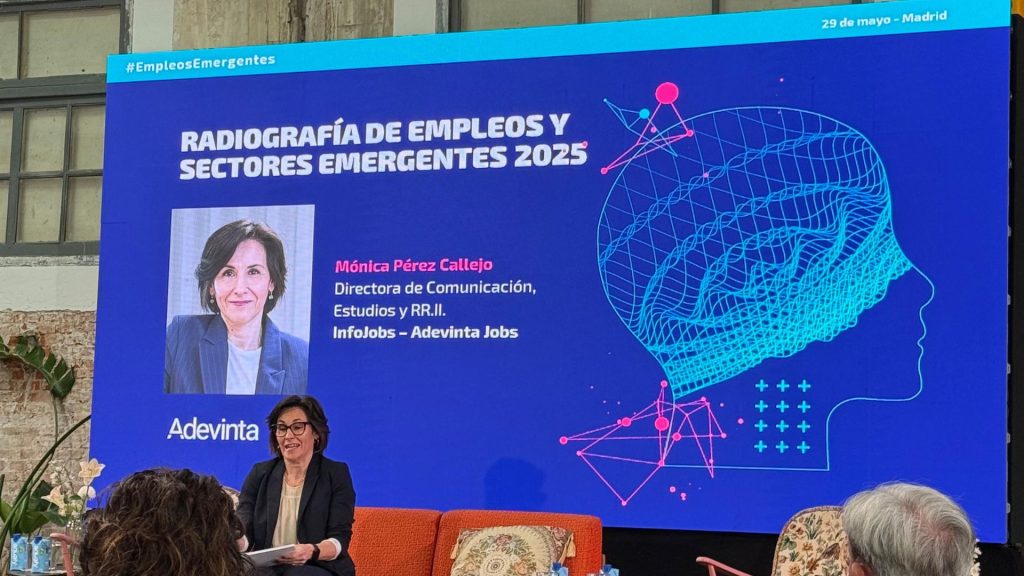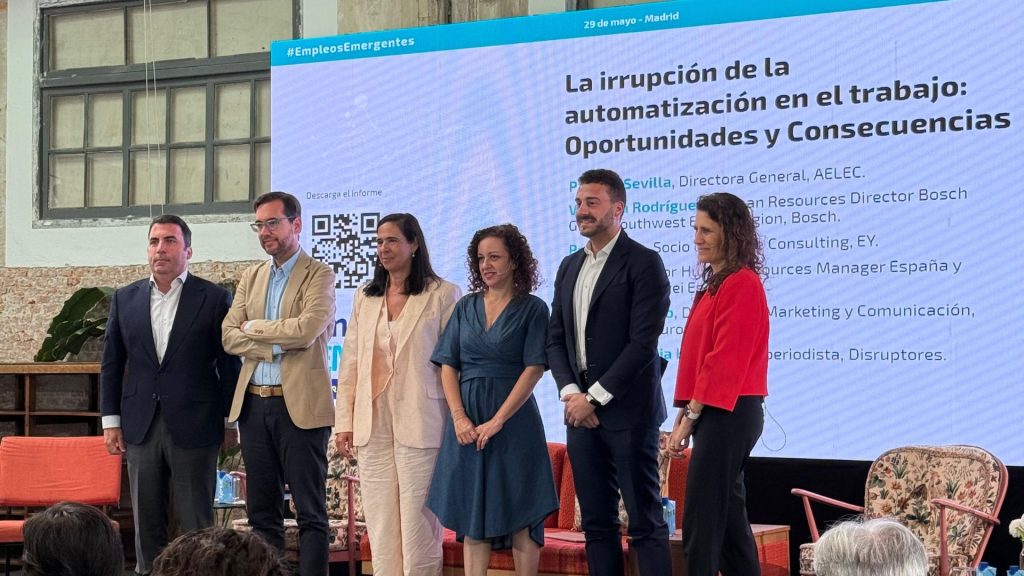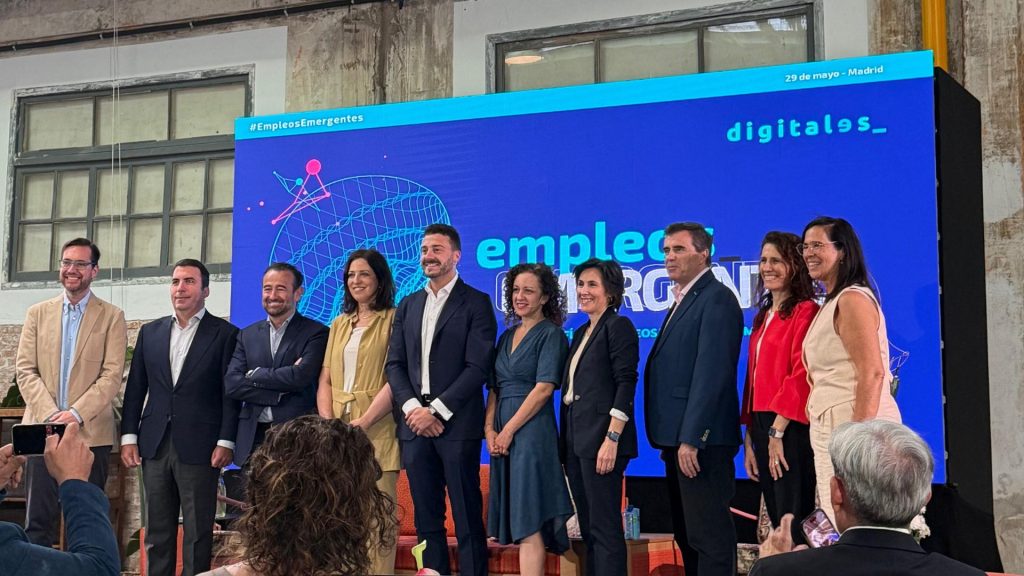DigitalES | X-ray of emerging jobs and sectors 2025
DigitalES is a Spanish association bringing together leading companies in telecommunications, technology and digital innovation, to promote social and economic progress through digital transformation. They focus on technology within:
- Society: to ensure it is cross-cutting and accessible for all.
- Companies: to make technology a driver of growth for companies, their sustainability and their internal processes.
- Administration: to promote a regulatory framework that facilitates investment through public policies.
X-ray of emerging jobs and sectors 2025
Lucila Finkel, Director General of New Forms of Employment, Ministry of Labor and Economy explained the challenges the labour market faces today: The gap that exists between the talent that is available and the skills businesses actually need. She emphasised that technologies such as AI and digitalisation are beginning to have greater impact within the world of work and how there is a lack of standards and framework surrounding this topic. She discussed how currently many automated processes require human input but also outlined how this is changing and how we need to have a more strategic approach to workforce development.

A taste of emerging skills sets and job roles
Mónica Pérez, Director of Communication, Research and Institutional Relations, InfoJobs, shared insights and key findings as to how digitalisation is reshaping the world of work. From the data analysis carried out the report reveals a mismatch between job supply and demand and how this gap is increasing in size due to constant technological change.
Between 2019-2024, driven by growing business activity and digital transformation, the number of jobs posted online in Spain has dramatically increased. Analysing more than 2.3 million of them, DigitalES observed:
- The largest demand for jobs was those that involved AI and generative AI. Among non-technical roles, marketing positions lead in this area, while roles in the educational and sales sector follow closely behind.
- Jobs such as data analyst have seen a 317% increase in job offers and this is a discussion point to shed light on the rising importance of AI development tools across industries.
- Softs skills are fundamental. 67% of job descriptions in 2024 included ‘agility’ as a requirement, and 30% mentioned ‘analytical thinking’. Yet only 12% of candidates for digital ICT roles include such skills in their profiles.
More detailed findings can be found in the relevant report.

Digitalisation and automation from the perspective of industry
Representatives from leading companies EY, Bosch, Huawei, AELEC and TechHub FP Euroformac came together in a constructive panel, reflecting on:
- How automation is changing their workplaces and how they are responding.
- How automation has become part of everyday operations helping teams to deliver results that are faster and of high quality.
- How AI is used within internal operations, from the smallest tasks, such as meeting minutes, to report generation.


Organisations are adapting their internal training programmes to ensure they are up to date with technological changes and offer employees opportunities to upskill and develop the digital skills they need to succeed.
- AELEC conducts large-scale studies to monitor the skillsets of employees upon entering the company against the needs of the energy sector, in order to provide relevant training.
- Bosch creates mappings of employee skills to optimise their distribution across available positions and organise teams with potential of peer learning.
- EY works on structuring micro credentials for flexible, practical and recognised learning in the workplace.
Finally, the guests acknowledged that implementing automation and adopting new technologies requires skill and that systems and safeguards must also be put into place during this implementation. While automation offers opportunity, its success depends on people and their adaptability, empathy, and willingness to grow alongside technology.
